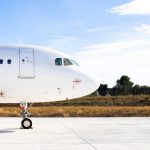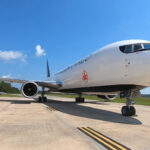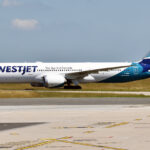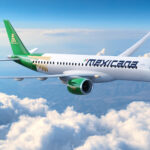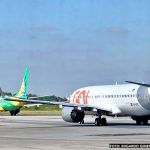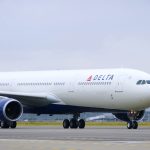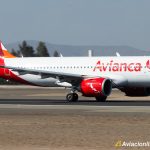Following the signing of an agreement with Aviation Partners Boeing (APB), low-cost carrier Ryanair last Monday installed the first Split Scimitar winglets (wing tip devices) on one of its Boeing 737-800s. The change was made to the airplane registered as EI-DLY, delivered to the company in 2006.
«This modification will improve aircraft fuel efficiency by up to 1.5%, reducing Ryanair’s annual fuel consumption by 65 million litres and carbon emissions by 165.000 tonnes», Ryanair said in a press release.
The installed wing tip device is the technological «successor» to the traditional 737NG (Next Generation) series device. The upgrade incorporates a second surface to reduce aerodynamic drag and improve aircraft performance.
Money saving and reduced greenhouse gas emissions
Ryanair had announced it would install the new devices on its 737-800 fleet last November. At the time, the company said the changes would require an investment of 200 million euros, which would be aimed at reducing fuel consumption and, as a result, saving money and reducing greenhouse gas emissions.
«This winglet technology will help us reach our ambitious environmental targets on our pathway to net zero emissions by 2050», said Thomas Fowler, Ryanair’s Director of Sustainability. «We are impressed with Aviation Partners Boeing’s innovative winglet designs and look forward to having them installed on not just this first aircraft but on over four hundred of our aircraft to further reduce our emissions», he added.
The 1.5% reduction in fuel consumption would mean considerable savings for the company, which plans to maintain most of its current fleet of the type despite the gradual addition of new Boeing 737 MAX 8200s planned for the next few years.
As an example, fuel expenditure reached 1.14 billion euros during the quarter ended September 2022. If the more fuel-efficient 737 MAXs in the fleet are taken into account, each aircraft required 2.2 million euros in the period. In that case, a reduction of 1.5% would mean a saving of more than 33 thousand euros per quarter.
See also: With reduced APD tax, Ryanair ramps up domestic UK operations



